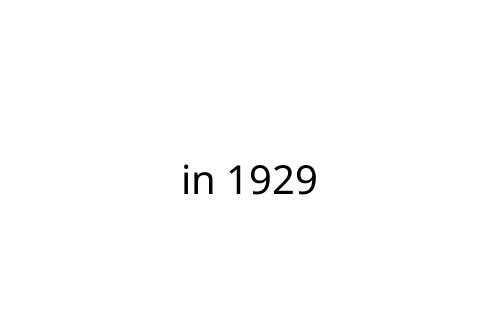in 1929
In 1929, the world stood at a crossroads. The year is synonymous with enormous shifts in economics, politics, and culture—most famously, the stock market crash that marked the onset of the Great Depression. Yet, 1929 was more than just a financial turning point. For anyone curious about this moment in history, it's worth understanding both the broad impact and subtler changes that began in this particular year.
The 1929 Stock Market Crash
The most defining event in 1929 was the collapse of the U.S. stock market, often called Black Tuesday. This massive financial downturn didn't just impact Wall Street; it sent ripples through economies worldwide. Investors lost fortunes, banks failed, and businesses closed—sparking unemployment and a decade of hardship.
What Caused the Crash?
Multiple factors came together in 1929. There was rampant speculation, with people buying stocks on margin (borrowing money to invest). This created an economic bubble. Once confidence faltered, a wave of selling occurred and, within days, the market crashed.
The Great Depression: Immediate Impact
The aftermath hit almost every sector. Unemployment rates skyrocketed, especially in the United States. Farms struggled with falling crop prices. Industrial production plummeted. The effects of the downturn stretched across North America, Europe, and beyond, making “in 1929” a phrase often associated with economic hardship and resilience.
Social and Cultural Shifts
Despite the economic chaos, not everything in 1929 was bleak. The late 1920s saw significant cultural shifts. Jazz music and cinema thrived—both offering escape and entertainment. Authors like Ernest Hemingway and Virginia Woolf were publishing influential works. In sports, the New York Yankees and Babe Ruth captivated fans.
Technological Progress
Innovation didn’t stop. The first Academy Awards took place in 1929, highlighting the rapid rise of film. Inventions like the car radio and frozen foods became realities, showing that progress persisted even in tough times.
International Events and Politics
Globally, 1929 was complex. The Lateran Treaty established Vatican City as an independent state. Meanwhile, the Soviet Union pursued aggressive restructuring under Stalin. In Germany, the repercussions of World War I still echoed, setting the stage for political changes that would define the 1930s.
Lessons Learned
Looking back at what happened in 1929, a few lessons stand out. Economic systems can be fragile, and the importance of financial regulation became clear after the crash. Resilience and creativity emerged in response to hardship—visible in the music, literature, and inventions of the era.
Lasting Influence
In 1929, the events and choices made would ripple forward for generations. Society faced a test; some aspects broke, but many adapted and survived. Whether you're interested in economic history, culture, or global politics, studying what happened in 1929 reveals a lot about risk, recovery, and reinvention.
In sum, in 1929, the world endured a seismic shock, responded in varied ways, and began redefining itself for the modern era.




